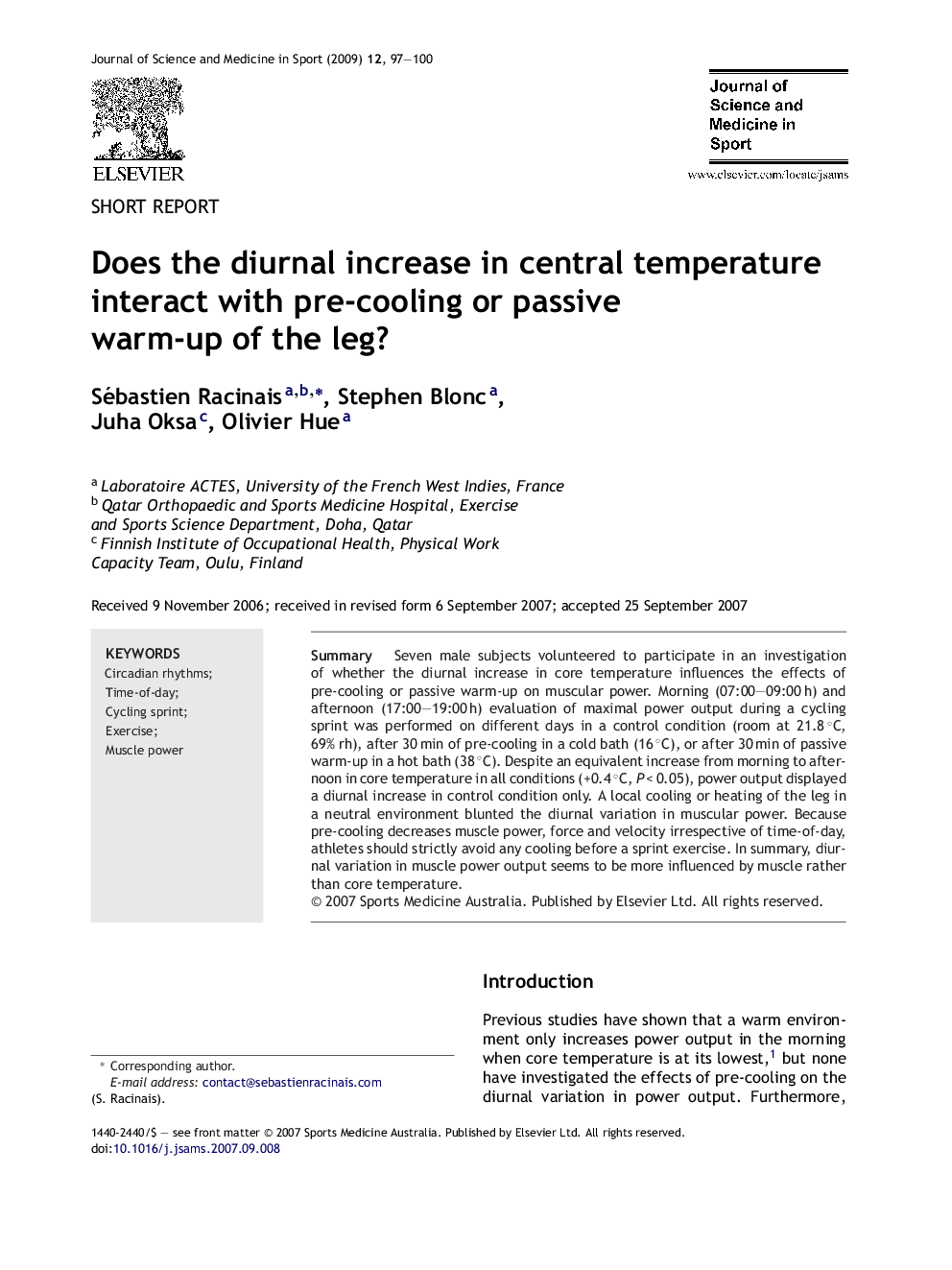| Article ID | Journal | Published Year | Pages | File Type |
|---|---|---|---|---|
| 2708794 | Journal of Science and Medicine in Sport | 2009 | 4 Pages |
Abstract
Seven male subjects volunteered to participate in an investigation of whether the diurnal increase in core temperature influences the effects of pre-cooling or passive warm-up on muscular power. Morning (07:00-09:00 h) and afternoon (17:00-19:00 h) evaluation of maximal power output during a cycling sprint was performed on different days in a control condition (room at 21.8 °C, 69% rh), after 30 min of pre-cooling in a cold bath (16 °C), or after 30 min of passive warm-up in a hot bath (38 °C). Despite an equivalent increase from morning to afternoon in core temperature in all conditions (+0.4 °C, P < 0.05), power output displayed a diurnal increase in control condition only. A local cooling or heating of the leg in a neutral environment blunted the diurnal variation in muscular power. Because pre-cooling decreases muscle power, force and velocity irrespective of time-of-day, athletes should strictly avoid any cooling before a sprint exercise. In summary, diurnal variation in muscle power output seems to be more influenced by muscle rather than core temperature.
Related Topics
Health Sciences
Medicine and Dentistry
Orthopedics, Sports Medicine and Rehabilitation
Authors
Sébastien Racinais, Stephen Blonc, Juha Oksa, Olivier Hue,
